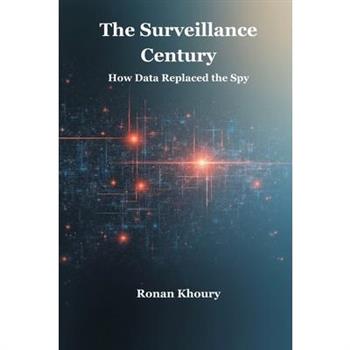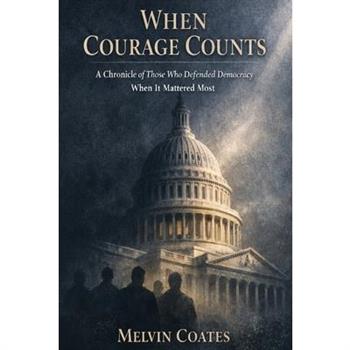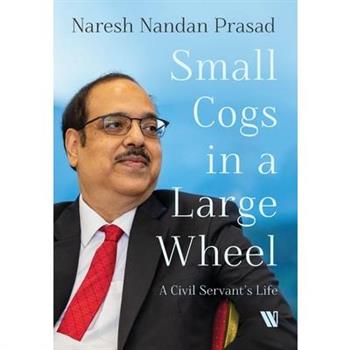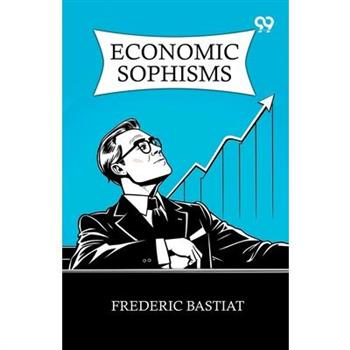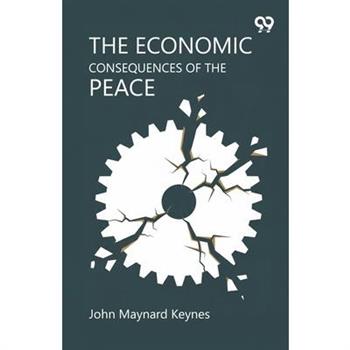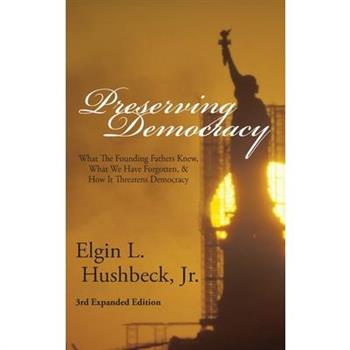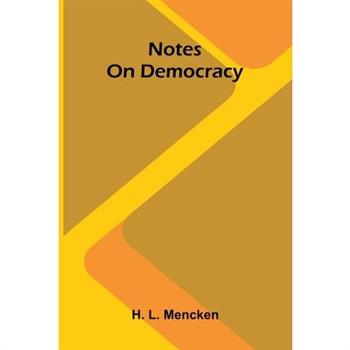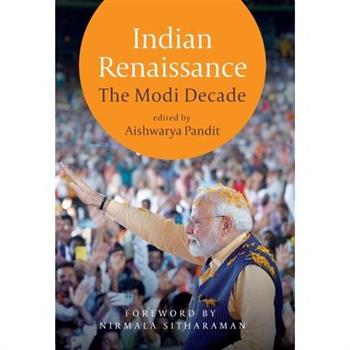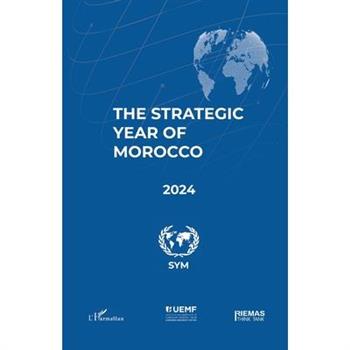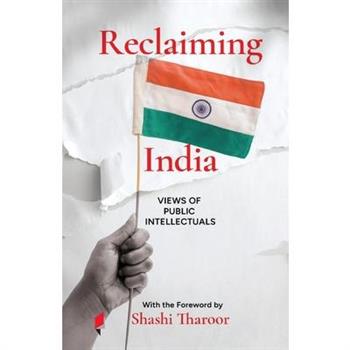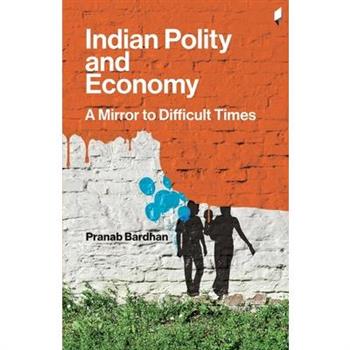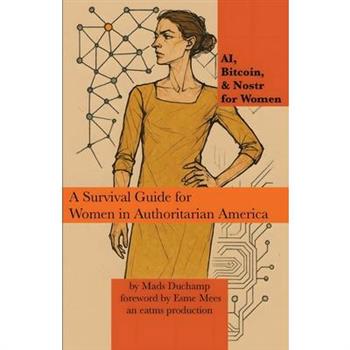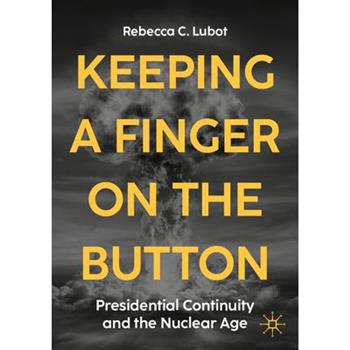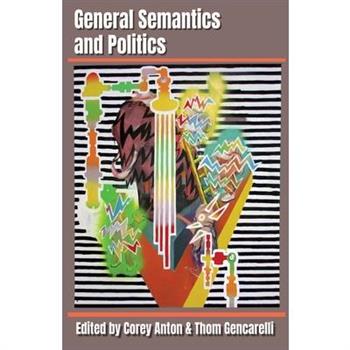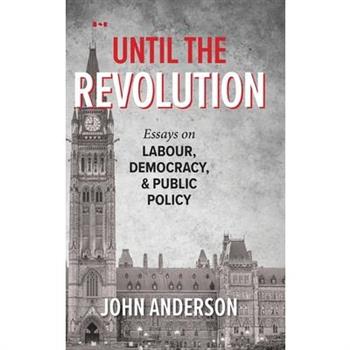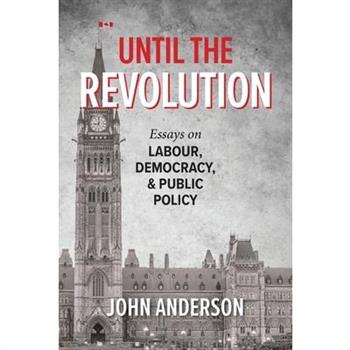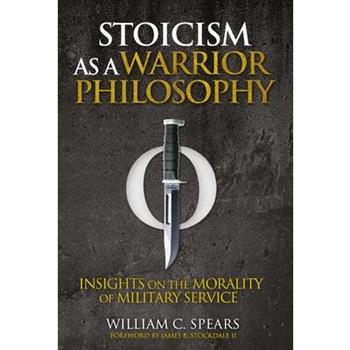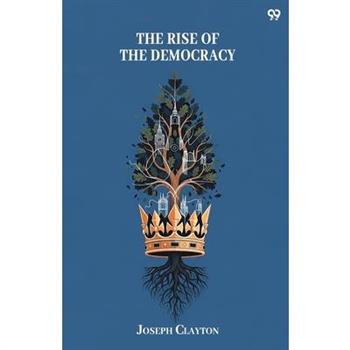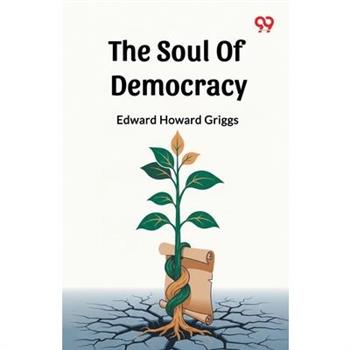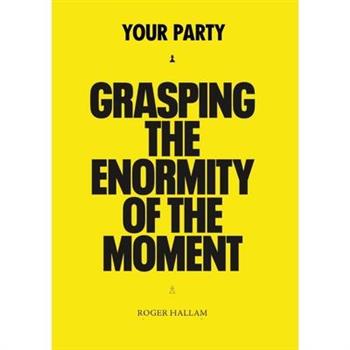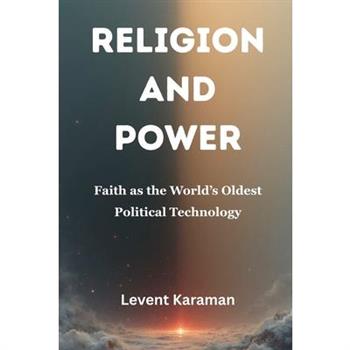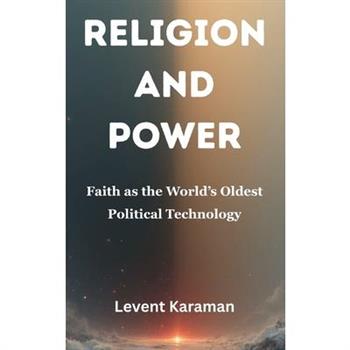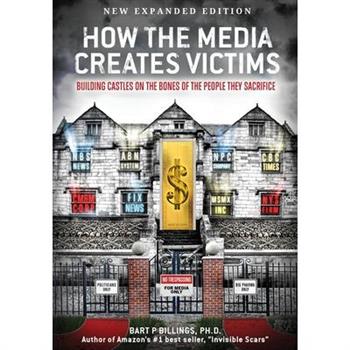Common Enemies
Common Enemies: Their Uses and Abuses by John Douglas PetersFrom polio to politics, from the Devil to Donald Trump, Common Enemies explores how real and imagined threats shape human history, societies, and personal behavior. Peters examines the psychology, strategy, and manipulation behind the creation of enemies-showing how leaders, religions, governments, and corporations exploit fear to unite, control, and divide.Through vivid examples ranging from Hitler's propaganda to modern debates over Covid-19, climate change, and artificial intelligence, this book reveals how "us versus them" narratives influence culture, religion, and politics. Peters uncovers the dual nature of common enemies-as catalysts for unity and survival, but also as tools of scapegoating, persecution, and destruction.Part history, part political analysis, and part psychology, Common Enemies offers readers a powerful lens to understand past events and modern conflicts, while equipping them to recognize manipulation in their own lives.
AI, Safety, & Security for Women
Women today live inside systems that watch them more closely than they realize. Phones, apps, workplaces, hospitals, banks, and government platforms collect data, track patterns, and hand decisions to automated tools built to save institutions time and money, not to understand women's lives. When these systems tighten or fail, women are the first to feel the impact. This book offers a clear, steady guide to navigating these systems and protecting yourself inside them. It explains how AI misreads women's routines, stress, caregiving, and health searches because speed is valued over accuracy, and how small adjustments can prevent those errors from shaping important outcomes. It shows how to secure your devices and accounts, guard sensitive health and family information, and communicate safely in monitored environments. It also teaches women how to use AI as a practical tool for planning, clarity, and protection. Readers learn how to build stronger boundaries, private lanes of communication, and daily habits that restore stability. By the end, women will feel more prepared, more grounded, and less dependent on systems that are increasingly automated and restrictive. No technical skills are required. This is a calm, practical survival guide for women who want safety, privacy, and control in a changing country.
Through Paddyfield and Minfeild
THROUGH PADDYFIELD AND MINEFIELD is a memoir of survival, loss and resilience in the shadow of Cambodia's darkest years under the brutal regime of the Khmer Rouge. A powerful and detailed account about the realities of famine to life in the work camps, and the unreported and forgotten haunting tragedy of the Ghost Mountain minefields in June 1979. Through Paddyfield and Minefield invites readers into a world where every step carried danger and where even remembering the past is a bold act of defiance.
Hidden Rulers Exposed
Power doesn't need a secret meeting. It just needs alignment. Hidden Rulers Exposed breaks down how media, money, philanthropy, and law quietly reinforce each other - shaping narratives, protecting insiders, and managing public perception. You'll discover the playbook behind agenda-setting, scandal containment, and selective outrage. - Why some stories explode while others vanish - How think tanks and foundations steer conversation - The invisible incentives that shape "consensus" This is a field guide to modern power - written for readers who see the patterns, feel the manipulation, and want the blueprint.
The Trouble with Freedom
An illuminating account of how Americans have been divided by the very value that unites them. America today is being torn apart by the struggle over a single concept, deeply rooted in the country's sense of self: freedom. Battered by wave after wave of crises, ordinary people of all political persuasions have come to feel that their freedom is under threat - and with it, nothing less than the soul of the nation. In The trouble with freedom, journalist and researcher Melissa Butcher takes a trip into the ferociously polarised world of American politics, hoping to find out what's going on beneath the surface. Criss-crossing the country, she talks to a wide range of people: Democrat and Republican, gay and straight, urban and rural, immigrants, First Nations, Black, white, the incarcerated. What she discovers is that political conflict is often the outcome of very personal experiences of managing cultural change. Exploring the different ways freedom has been used to define what it means to be American, Butcher encounters anger and distrust, but also untapped possibilities for empathy and care.
Small Cogs in a Large Wheel
About the BookA WELL-ARTICULATED MEMOIR OF A LIFE IN THE CIVIL SERVICECivil servants are the permanent executive-a bulwark of stability as regimes and policies change. They are small cogs in the large machinery that is the Indian state, yet indispensable for its efficient running. Naresh Nandan Prasad was one such cog in the wheel and an extraordinary one at that. He had the rare privilege of working in three states: Tamil Nadu, Uttar Pradesh and Uttarakhand. From this uncommon vantage point, he looks back on a long, storied career and, through that examination, investigates the role of a civil servant in the life of a nation.Beginning with his training days at the Lal Bahadur Shastri National Academy of Administration and his life as a young administrator caught in the hurly-burly of Indian politics, Small Cogs in a Large Wheel is an account of Prasad's life. It examines his time in the corridors of power in Delhi and his international stints with the United Nations. Capturing the many experiences of one man's career, the book records the political through the personal.A candid account of an exceptional career, this is a must-read for anyone interested in understanding the life of a civil servant in India, the role of the country's civil service and the complex maze of the world of multilateral diplomacy. About the AuthorNaresh Nandan Prasad, an alumnus of St. Stephen's College, Delhi University, held a double master's degree in history and economics. Prasad's professional career spanned almost 45 years, with about 31 years in the Indian Administrative Service (IAS, 1981 batch UP/Uttarakhand cadre) and over 14 years in the United Nations (United Nations Industrial Development Organization [UNDO] and the World Intellectual Property Organization [WIPO]). In his long career in the IAS, he gained wide administrative and technical experience at the national, state and local levels in the areas of rural and urban development, law and order management, the conduct of elections, media management, industrial policy, tourism, intellectual property rights and multilateral negotiations. Besides having worked at the Centre (Government of India), Prasad is one of the rare IAS officers to have worked in three totally diverse states of India-Tamil Nadu, Uttar Pradesh and Uttarakhand.
Economic Sophisms
Economic sophisms is a collection of essays that challenges the misconceptions and fallacies underlying restrictive trade policies. Written with clarity and irony, the work presents a strong defense of free trade and economic freedom against the doctrines of protectionism that favor narrow producer interests. The author argues that the prosperity of society depends on encouraging abundance rather than scarcity, revealing how attempts to shield industries through tariffs ultimately harm consumers and distort natural economic balance. Each essay applies logical reasoning and vivid illustration to expose how misguided economic thinking can lead to inefficiency and injustice. The text moves beyond theoretical debate, emphasizing the moral and social implications of economic policy. By highlighting the interdependence between production and consumption, it urges the reader to view trade not as a competition but as a cooperative mechanism that advances collective well-being. The work remains a foundational contribution to the understanding of economic liberty and rational policymaking.
American Government for Dummies
A source of unbiased, factual information on the U.S. government American Government For Dummies helps you easily understand the concepts and historical events that define the U.S. government system. This readable guide covers all the content in a typical course on American government or civics, and it offers curious readers a way to learn more about how the country is run. You'll get clear, impartial, and trustworthy explanations of topics such as the three branches of government, political parties, how campaigns and elections work, and public and foreign policy. It's everything you need to become government-savvy. Inside: Understand the history of the U.S. system of government and how it operates today Learn about opinion polls, elections, interest groups, political parties, and campaigns Untangle the differences among the Senate, House of Representatives, Judiciary, and other important institutions Get clarity on the importance of voting and discover other ways you can contribute American Government For Dummies is a perfect for anyone looking to brush up on the foundations of the U.S. government--for a class, or simply to become more informed on the systems and structures that shape daily life.
The Economic Consequences Of The Peace
The economic consequences of the peace presents a sharp critique of the post-World War I settlement, focusing on the economic dangers embedded within the Treaty of Versailles. Drawing from first-hand experience at the Paris Peace Conference, the narrative opens with a detailed look at Europe's fragile economic condition in the aftermath of the war. It highlights the risk of continued hardship due to the harsh terms imposed on Germany, particularly the burden of reparations and territorial losses. The author warns that these punitive measures may cripple Germany's economy, sow resentment, and destabilize the broader European economic system. Throughout the text, there is a strong argument that short-term political gains were prioritized over long-term economic recovery, especially by the Allied powers. The book explores themes of justice, economic foresight, and the moral responsibility of victors in shaping peace. It challenges the assumption that political victory guarantees economic stability, instead portraying the peace process as short-sighted and ultimately dangerous. The work serves as both a prophetic warning and a call for more humane and practical post-war economic planning.
Quasimodo Von Belvedere
"That's enough!" I cried, interrupting him. "You are an anarchist! It's talk like that that's undermining the discipline of labor and destroying the fabric of the government!""I would become the American Rasputin."Wobbly. Accused bootlegger. Independent Superman of Chicago! The life and works of Quasimodo von Belvedere, gathered and annotated for the first time.
A Non-Euclidean Perspective
Years before he was famous as the co-author of the Illuminatus! trilogy, Robert Anton Wilson was writing astute essays about the evils of authoritarianism, prejudice, puritanism, and exploitation. The essays and interviews in this book span 45 years, from 1960 to 2005, responding to events from the Bay of Pigs invasion to the War on Terror. Along the way, they will introduce you, or re-introduce you, to the thinkers who influenced Wilson the most-Spooner, Tucker, Proudhon, Warren, Reich, Fuller, Korzybski, and others.Calling for liberty, tolerance, and compassion, Wilson was loyal to neither the political left nor the political right - he preferred to call his ideas "non-Euclidean." These writings deviate from traditional Euclidean models of the political spectrum where the ideological landscape is easily mappable. Here, politics are as complex, multidimensional, and unconventional as the human mind.- - -"Say what you like about the principles of anarchism, Robert Anton Wilson said it earlier, better, and funnier." - Ken MacLeod, author of The Star Fraction and Beyond The Hallowed Sky"An encyclopedic scholar of human folly, or maybe simply the folly of being human."- Andrei Codrescu, author of The Disappearance of the Outside: a Manifesto For Escape"Wilson understood that true freedom requires breaking everyone's chains, not building higher walls around private compounds."- Mark Frauenfelder, co-founder of Boing Boing"The imagination, wit, and humanity evident in these essays animated Robert Anton Wilson's politics and writing."- Revd Jonathan Harris, High Priest of Church of Burn"A unique combination of compassion and erudition that will light up your neural pathways like Times Square on New Year's Eve." - Lewis Shiner, author of Glimpses"A volume of priceless wisdom from a multi-dimensional intellect."- Victor Koman, author of The Jehovah Contract and Kings of the High Frontier
Coverage Denied
In the aftermath of the assassination of UnitedHealthcare CEO Brian Thompson in December 2024, everyday Americans took to social media to share stories of the challenges they'd faced trying to navigate the American health insurance system. Why did this event strike such a nerve with the American public? For a topic as central to the lives of Americans as health care, there is no book that examines the impact of coverage denial, whereby health insurers decide whether to cover health services that appear to be within the scope of a plan's benefits - not until now. In Coverage Denied, health policy professor Miranda Yaver offers a sobering account of the ways in which coverage denials damage patient health and exacerbate inequalities along income, education, and racial lines. Combining rich interview material with original survey data, Yaver draws critical attention to the tens of millions of medical claims denied by health insurers every year, shining a necessary light on our inequitable health care system.
Preserving Democracy
A different way of looking at politics.Like an aging monument, democracy is crumbling. Increasing polarization makes effective governance difficult and is tearing the country apart. Every previous attempt at democracy failed. Will we suffer the same fate?Preserving Democracy is a revolutionary book that challenges us to reimagine politics differently. Rather than seeing democracy as defeating the opposition with fifty percent plus one, the core of democracy is listening to everyone and building the most extensive consensus possible. A truly democratic solution must come from the bottom up. It comes from discussion, not division.Preserving Democracy focuses on issues threatening the country, yet it does so with a historical analysis of long-term trends and dangers rather than the partisanship and fingerpointing that commonly dominate political discussions. It seeks solutions rather than places blame. These solutions are found in a deeper understanding of the threats and in the ability to work together. Only when we understand the problems can we find effective solutions. Only when we work together can we implement them.While discussing the debt, the growth of government, our understanding of the Constitution and the Supreme Court, the role of justice in the law, voting, the misuse of language, the media, information, and American values, Preserving Democracy shows how we got here and charts a path out of the partisan morass by focusing in on the issues rather than the politics.By studying America's democratic traditions, both its strengths and its failures, we can understand why America has been both so successful and yet is now so threatened.Every American who plans to vote or otherwise participate in our government needs to read this book, not necessarily to agree with the author on each subject, but to find a way to better understand both the subject and the background of diverse views.Informed dialogue may be the key to preserving democracy in America.
How to Fight Discrimination in America KNOW YOUR RIGHTS!
About this book, authored by Homer Lee Bizzle III, serves as a comprehensive guide that empowers citizens in America to fight discrimination and foster equality. Homer emphasizes the importance of knowledge and education, civic engagement (the importance of voting), effective protest methods, and awareness as tools for empowering citizens and addressing systematic inequalities. The highlight and bonus of the book is reparations.
Historia Del Levantamiento, Guerra Y Revoluci籀n De Espa簽a (5 De 5)
In the tumultuous dawn of the nineteenth century, Spain stood at the crossroads of revolution and tradition, a nation torn by military uprisings and the throes of political change. This vivid historical narrative draws readers into the heart of Spanish civil war history, illuminating the intricate tapestry of European political history and the Spanish revolution analysis. As Spain grappled with the seismic shifts brought on by the Napoleonic Wars, the era's key figures such as Antonio C獺novas del Castillo and Juan Prim emerge with striking clarity, their biographies woven into the broader context of early 19th century Europe. Rediscovered after decades out of print and now republished by Alpha Editions, this work is more than just a chronicle of past events; it is a cultural treasure and a collector's item, meticulously restored for today's and future generations. It offers history enthusiasts and academic researchers alike a profound insight into the societal upheavals that shaped modern Spain. The narrative captures the essence of a nation at war with itself, a poignant reminder of the enduring human spirit amidst chaos. This edition serves as both an invaluable resource and a captivating read, ensuring that the echoes of Spain's revolutionary past continue to resonate with contemporary audiences.
Jailed For Freedom
In the early 20th century, a group of resolute women dared to challenge the status quo, risking imprisonment for a cause greater than themselves. This gripping suffragist firsthand narrative plunges readers into the heart of the women's suffrage movement, offering a vivid political activism chronicle that echoes with relevance today. As civil disobedience protests swept across America, these courageous women fought tirelessly for voting rights, their voices resonating through history. Once out of print for decades, this essential piece of nonfiction women's history has been lovingly republished by Alpha Editions, restored for today's and future generations. Beyond a mere recounting of events, this edition stands as a collector's item and a cultural treasure, inviting readers to explore the depths of feminist studies curriculum and historical research reference. It captures the indomitable spirit of those who, like Alice Paul and Susan B. Anthony, refused to be silenced. The narrative not only chronicles the American suffrage era but also serves as a poignant reminder of the power of collective action and the enduring struggle for equality. This is not just a reprint; it is a bridge to the past, offering insights that continue to inspire and provoke thought in our modern age.
William Pitt And National Revival
In the bustling corridors of eighteenth-century England, where the fate of a nation hung in the balance, one man emerged as a beacon of hope and resurgence. This historical biography delves into the intricate tapestry of British politics during a time of national revival, capturing the essence of a leader whose vision transformed the landscape of 18th century Britain. Out of print for decades, this compelling narrative has been republished by Alpha Editions, now restored for today's and future generations. With a keen eye for detail and a profound understanding of political history, the book offers a vivid exploration of the life and times of one of the most influential British prime ministers. It unravels the complexities of governance and the relentless pursuit of progress that defined an era, providing invaluable insights for both history enthusiasts and academic researchers. This edition is not just a reprint-it's a collector's item and a cultural treasure, offering readers a rare glimpse into the past through the lens of J. Holland Rose's meticulous scholarship. As relevant today as it was in its original publication, the book serves as a poignant reminder of the enduring impact of visionary leadership. Its pages resonate with the echoes of a bygone era, inviting readers to immerse themselves in the rich narrative of British political history.
Notes On Democracy
In a world where democracy is both celebrated and scrutinised, this incisive work cuts through the noise with a sharp wit and unyielding critique. As relevant today as it was in the early 20th century, this collection of political commentary essays offers a profound examination of democratic principles, challenging readers to rethink the very foundations of governance. Once out of print for decades, this seminal piece of American political philosophy has been lovingly restored by Alpha Editions for today's and future generations. Diving deep into the intricacies of 1920s American politics, it offers a critical lens that resonates with political science students and critical thinking readers alike. The essays echo the satirical brilliance of George Orwell and Mark Twain, making it a compelling read for anyone interested in political satire analysis. This edition is not just a reprint - it's a collector's item and a cultural treasure, offering insights into the United States' political history that remain startlingly pertinent. Whether you're a casual reader intrigued by historical critique or a classic-collection buyer seeking a touchstone of political thought, this volume stands as a testament to the enduring power of critical analysis. Its revival is a reminder of the importance of questioning and understanding the systems that govern us, inviting readers to engage with the past to illuminate the present.
A Vuela Pluma
In the vibrant tapestry of 19th century Spain, where political upheaval and literary brilliance intertwined, emerges a collection that defies the erosion of time. Rediscovered after decades of obscurity, this cultural and literary critique offers a profound glimpse into the dynamism of Spanish intellectual discourse. Alpha Editions proudly presents this republished treasure, meticulously restored for today's and future generations, ensuring its timeless relevance. Within its pages, readers will find a rich tapestry of literary articles and political essays, each piece a testament to the fervent spirit of the era. The anthology delves into political and literary themes that resonate with both the casual reader and the discerning collector of Spanish literature. As the words of esteemed voices like Leopoldo Alas Clarin and Benito Perez Galdos echo through its chapters, the book captures the essence of 19th century Spanish politics and cultural introspection, offering insights that continue to captivate Spanish literature enthusiasts and political history readers alike. This edition is not just a reprint - it's a collector's item and a cultural treasure, a beacon of the Spanish literature collection that scholars and aficionados have long yearned to explore. Its revival marks a significant moment in the appreciation of Spanish intellectual heritage, inviting a new generation to engage with the passionate dialogues that shaped a nation's identity.
Pine To Potomac
In the bustling corridors of 19th century America, two figures stand resolute amidst the tides of change and ambition. This compelling narrative offers an intimate glimpse into the lives of James G. Blaine and John A. Logan, whose paths intertwined with the very fabric of American political history. As a biography of James G. Blaine, this work delves into the complexities of a man whose influence shaped the United States politics during the Gilded Age. From his youthful aspirations to his significant public services, Blaine's journey is a testament to the era's vibrant yet tumultuous landscape. The book also casts light on the life of John A. Logan, another stalwart of the same epoch, whose contributions echo through the annals of political biography. For history enthusiasts and political science students alike, this narrative not only enriches the understanding of American statesmen but also invites reflection on the enduring impact of their legacies. This book was out of print for decades and is now republished by Alpha Editions, ensuring it is restored for today's and future generations. This edition is not just a reprint-it's a collector's item and a cultural treasure. Its revival offers both casual readers and classic-collection buyers a chance to rediscover the poignant stories of these historical figures, making it an essential addition to any library dedicated to nineteenth century politics and the rich tapestry of 19th century America.
Historia Del Levantamiento, Guerra Y Revoluci籀n De Espa簽a (2 De 5)
In the midst of chaos and courage, the echoes of a nation's struggle reverberate through time, capturing the essence of Spain's turbulent past. This compelling historical account unveils the intricate layers of the Spanish Civil War and the political upheaval that shaped modern Europe. As history enthusiasts and scholars delve into these pages, they are transported to the heart of 19th century Spain, where the shadows of the Peninsular War era loom large. This book was out of print for decades and is now republished by Alpha Editions, offering a rare glimpse into the Spanish revolution and its enduring impact. The narrative weaves a vivid tapestry of military conflict and resilience, shedding light on the profound shifts that defined a nation in turmoil. It stands as a testament to the enduring spirit of those who lived through these tumultuous times, making it an invaluable resource for academic research and a captivating read for lovers of Spanish historical literature. Restored for today's and future generations, this edition is not just a reprint - it's a collector's item and a cultural treasure. As readers immerse themselves in the detailed chronicles of the past, they gain insight into the complexities of European history and the indomitable will of the Spanish people.
Indian Renaissance
About the BookA COMPREHENSIVE OVERVIEW OF TEN YEARS OF THE MODI GOVERNMENT.A collection of essays that cover the whole gamut of social, cultural and political change across India during the last ten years, Indian Renaissance brings together diverse voices: senior journalists, political leaders, policymakers and public intellectuals. They examine the singular influence of Modi and his transformation of the BJP, and the development initiatives that have changed the lives of Indians even in the remotest of villages. There are essays on India's relationship with other nations, especially the US, and on the newly revived relations between India and the Arab world. Yet others reflect on the digital revolution, the challenge of educating a billion people, and the new (intern)nationalist paradigm that is being given shape by the government of India.About the EditorAishwarya Pandit is Associate Professor, Jindal Global Law School. She has been a visiting fellow at the Centre for the. Study of Developing Societies. She previously taught as a visiting faculty at IIM Indore. Her first book titled Claiming Citizenship and Nation: Muslim Politics and State Building in North India, 1947-1986 was published by Routledge in 2022. She has been a columnist for The Sunday Guardian.
The Strategic Year of Morocco 2024
This Strategic Yearbook aligns with the core objective of the Euromed University of Fes to accompany Morocco in its journey and aspirations towards progress. Without claiming to be a comprehensive assessment of its numerous and significant achievements, it is primarily intended to be read as a collection of reflections on various sectors of activity. It is necessary to decipher the indicators of effective functioning, evaluate the results, and identify any shortcomings.Summary: Moroccan Diplomacy facing external/internal challenges; Sectorial policies in Morocco; Institutions, Governance, Political system, and Development in Morocco.
Reclaiming India
In India, the last few years have been marked by a consistent attack on the democratic matrix of our country. Constitutional and human rights of people, most notably--the fundamental right to equality, the right to live with dignity, to question the state and dissent--have been trampled with impunity. Institutions of oversight have been systematically emaciated, with the functioning of the Parliament gravely compromised.Rise of fascism and crony capitalism, and the concomitant increase in violence in society have had a devastating impact on the lives of people, especially those belonging to the Dalit, Adivasi, Muslim and other marginalised communities. The COVID-19 crisis too has exposed manifold the apathetic and anti-poor nature of the state.Amidst the oppression and intimidation, however, the country has witnessed strong peoples' movements against injustice and tyranny. In December 2019, people all over India rose to protect the Constitution when the Citizenship Amendment Act (CAA) was brought in along with National Register of Citizens (NRC) and National Population Register (NPR). Exactly one year after the CAA protests shook the country, millions of farmers took to the streets to protest against the anti-people farm laws passed by the Parliament.Reclaiming India: Views of Public Intellectuals is the culmination of a public lecture series organised by ANHAD in 2021-22; it hopes to start a conversation to explore the contours of a society that is more just, equal and aligned to the Constitutional values of liberty and fraternity. The lectures, on relevant themes by leading public intellectuals, as under, will provide an alternate vision for the country.
Indian Polity and Economy
Pranab Bardhan has been arguing for a long time that a Universal Basic Income policy can be effective in a country like India to relieve economic insecurity to a large extent. Bardhan has also constructed a thorough critique of the political direction India has been taking over the last few years leading to considerable social stress. For him, the health of a country's political economy depends on its people's capacity to exercise their democratic rights as well as their capacity to earn and spend. Thus, empowerment of the people is linked organically with income for the people.Bardhan's argument has emerged stronger in the wake of the COVID-19 onslaught. Many people, especially in the vast informal sector and in the salaried sector too, have suffered loss of income during the long spells of lockdown. Ensuring a basic income for them is crucial for social insurance as well as the rejuvenation of the economy as a whole.Indian Polity and Economy: A Mirror to Difficult Times, brings together some of Bardhan's articles written over the past five years on Universal Basic Income, the current political situation, and political-economy and policy, culminating in the recent pandemic period.
The Raffel Ticket
Drawing on the past, outraged by the present and still believing in America's future, Keith Raffel examines the nation's challenges with clarity, wit and vision. These sharp, eloquent essays don't just inform-they provoke and entertain. With insights collected from teaching tech ethics at Harvard, founding a Silicon Valley startup, watching over the CIA, studying history, writing bestselling thrillers and raising a family, Raffel offers his own distinctive views on what's going on in this country and world of ours. He'll broaden your horizons, challenge your assumptions and keep you turning the pages.
AI, Bitcoin, & Nostr for Women
Women today live inside systems that were not built to protect them. Phones, apps, banks, hospitals, and online platforms collect data, track movement, and make automated decisions that shape their lives, often without warning or explanation. When these systems tighten or fail, women feel the pressure first. This book gives women a clear, simple guide to understanding how these systems work and how to protect themselves. It explains how to strengthen digital boundaries, secure your devices and accounts, use AI safely, and recognize when data is being used against you. It also shows how Bitcoin can offer a small but real layer of financial independence, and how Nostr, a decentralized speech network, helps women speak freely without algorithmic punishment. Readers learn how to build "parallel power" through small income streams, secure identities, private communication, and daily habits that increase stability in an increasingly restrictive America. By the end of this book, women will feel more secure and less dependent on vulnerable systems. No technical skills are required. This is a calm, practical survival guide for women who want more control, more privacy, and more independence in a changing country.
Keeping a Finger on the Button
Drawing on unmined archives and original interviews, Rebecca Lubot tells the story of how US lawmakers grappled with issues over presidential succession and inability and vice-presidential vacancy and ultimately ratified the Twenty-Fifth Amendment. She argues that nuclear anxiety played a crucial role in the development of the amendment and its aftereffects, showing how politics and culture reflected this anxiety, and multiple administrations intensified it. She also offers solutions to the amendment's gaps. As the threat of accident, miscalculation, or madness looms, never has a book on the intersection of presidential continuity and the nuclear age been more necessary.
General Semantics and Politics
Designed for those discovering general semantics for the first time as well as for scholars who are well versed in it, this collection provides vital analytic tools for understanding the contemporary world of politics. It brings together essays that span a wide range of concerns, including the underpinnings of democracy, the challenges of media bias and the two-party system, the difficulties in thinking about money and inequality, the struggle against polarization, how to deal with conspiracy theories, and, along the way, provides ample resources for engaging in fair and rational dialogue. In today's world, where so many people are confused and disgruntled, and perhaps on the verge of giving up on the possibility of constructive political discourse, this collection is a breath of fresh air. It reminds us that hope is not lost so long as we are willing to openly and honestly think about what is going on. Essential reading for anyone interested in general semantics, the contemporary world of politics, and/or the connection between them, it is a collection not to be missed.
Until the Revolution
This book collects nearly forty years of articles, papers, and newspaper op-eds dealing with some of the most important issues that have affected Canada over the last four decades. The core topics include how to regulate the digital economy, how to overcome inequality, how to build a social economy, and how unions should respond to the ever-changing workplace. Drawing from a career spanning academia, politics, trade unions, and public policy, as well as his tenure as policy director for the federal NDP during its time as the official opposition, the author offers a unique and informed perspective on the policies that have defined modern Canada. For policymakers, activists, and anyone interested in the forces shaping Canada's future, this book is an essential guide to the conversations that have mattered and those that will continue to shape the country in the decades to come.
Until the Revolution
This book collects nearly forty years of articles, papers, and newspaper op-eds dealing with some of the most important issues that have affected Canada over the last four decades. The core topics include how to regulate the digital economy, how to overcome inequality, how to build a social economy, and how unions should respond to the ever-changing workplace. Drawing from a career spanning academia, politics, trade unions, and public policy, as well as his tenure as policy director for the federal NDP during its time as the official opposition, the author offers a unique and informed perspective on the policies that have defined modern Canada. For policymakers, activists, and anyone interested in the forces shaping Canada's future, this book is an essential guide to the conversations that have mattered and those that will continue to shape the country in the decades to come.
The Essential John Derbyshire
The Essential John Derbyshire collects more than two decades of sometimes controversial and always incisive essays from one of the Right's most independent voices. This anthology charts the evolution of a writer who, like many of his generation, moved steadily away from mainstream conservatism toward a franker, more empirically grounded assessment of America and The West's most pressing questions around race, immigration, cultural decay, and the durability of our civilization. Derbyshire's signature wit and analytical fearlessness runs through every essay. From his now-infamous "Talk: Non-Black Version" to meditations on IQ and demographic change, Derbyshire confronts the topics that polite society insists be left untouched. Just as striking, however, are his reflections on the bureaucratic sclerosis of liberalism and the fraying of Anglo-American institutions under the pressure of mass democracy. Moreover, his essays on classical music, pop culture, and mathematics reveal the broader intellectual landscape of a cultivated and curious mind. Unapologetically honest and often ahead of his time, Derbyshire speaks to readers who are weary of ideological conformity and the polite fictions such conformity so often requires. However unfashionable its conclusions, The Essential John Derbyshire lives as both a record of cultural dissent in the age of conservative retreat and a model of moral and intellectual courage. It captures the full range of a writer unafraid to say what others merely think, one who has never mistaken social respectability for truth.
The Last Men
A GRAVE WARNING THAT THE DECLINE OF THE WEST IS BIOLOGICAL, FROM BEST-SELLING AUTHOR AND HEALTH GURU DR. CHARLES CORNISH-DALE In The Last Men: Liberalism and the Death of Masculinity, the Raw Egg Nationalist himself, Dr. Charles Cornish-Dale, delivers a provocative examination of the various biological and cultural forces eroding masculinity in contemporary society. Reinterpreting Francis Fukuyama's The End of History and the Last Man through this biological lens, Cornish-Dale contends that the modern "Last Man" isn't just a cultural archetype, but a physiological reality shaped by endocrine disruptors, processed food, and a political system hostile to masculine vitality. Beyond diagnosis, The Last Men offers solutions, from lifestyle interventions to broader political questions: Can masculinity survive under liberal democracy?
Stoicism as a Warrior Philosophy
"William C. Spears presents a compelling case for Stoicism as the moral framework warriors need. I saw this firsthand during my service in the Marine Corps, at the CIA, and later as a senior official at the Pentagon. The core principles of Stoicism--discipline, resilience, knowing what matters--apply just as much on the battlefield as they do in the Situation Room at the White House. This is not just theory--it's a philosophy tested under pressure, and meant for those whose decisions have consequences measured in lives." - Michael "Mick" Mulroy, former U.S. Deputy Assistant Secretary of Defense for the Middle East and senior fellow at Harvard's Belfer Center"If Stoicism seriously attracts your attention, you need a North Star. In the life of work William Spears has invested in this text, you have a resource that provides authentic, thorough guidance. He writes it in a wonderful manner that allows you to choose your own challenges, but with the tools included to have a 'best chance' of finding both methodology and reward. And when you master an aspect of Stoicism, it allows you to 'bite off' another piece of its life-sustaining wisdom and approach any challenge with confidence.Foreword by James B. Stockdale II - Can ancient philosophers really provide useful insights for the modern warfighter?- How might they reconcile cosmopolitan principles with patriotic duty?- Would a truly enlightened individual participate in the horrors of war? Stoicism as a Warrior Philosophy grapples with these questions and more. Authored by a serving military professional, it breaks down the most advanced concepts of Stoicism into plain language without oversimplifying. Exhaustively researched, steeped in original sources, and informed by examples from the cutting edge of modern conflict, it builds upon ancient thinking to develop innovative theories of patriotic duty and ethical warfighting. While Stoicism has seen an explosion in popular interest, and is widely embraced in military culture, no serious philosophical work has yet explored its full implications within the military profession. This book answers that call. Endorsed by senior military officials and academic philosophers, Stoicism as a Warrior Philosophy provides compelling and original contributions to both military ethics and the literature of modern Stoicism.
The Rise Of The Democracy
The rise of the democracy explores the gradual development of political democracy in England, beginning with early struggles against monarchical absolutism and landmark events such as the signing of the Magna Carta and the creation of parliamentary representation. It highlights the enduring fight for self-governance by the English people, focusing on key figures and movements that shaped democratic ideals. The narrative opens with an analysis of Britain's influence on global democratic movements, emphasizing how elected governance arose from centuries of opposition to tyranny. The work details the contributions of historical figures, including church leaders who laid foundations for constitutional liberties. It stresses that democracy in England evolved through practical reforms rather than grand political theories, marking a significant advancement in the pursuit of individual freedoms and collective governance. This account provides a comprehensive overview of how democracy took shape amid social and political challenges, underscoring the persistence and gradual nature of England s democratic progress.
The Soul Of Democracy
The soul of democracy offers a philosophical exploration of the values that define true democracy, particularly in a world reshaped by war. The book enhances reflections on the moral responsibilities of individuals and nations as they grapple with the consequences of global conflict. It examines how the struggle for liberty must go beyond political systems, urging a deeper integration of democratic ideals into daily life. The narrative emphasizes the importance of personal integrity, social justice, and collective responsibility as essential elements for building a more humane and unified society. Through thoughtful analysis, the work highlights the tension between personal freedom and the greater good, encouraging a reevaluation of how democracy functions during times of crisis. It presents democracy as a living principle that must be continually renewed through ethical action and shared purpose. The text calls for resilience, compassion, and clarity as humanity seeks to rebuild and strengthen its commitment to justice and equality in the aftermath of war.
Eternal Capitalist Trickery
The concentration of power and wealth in the hands of a small predatory class, repeated crises, the inability of politicians to influence the course of events, worsening inequalities and the end of growth are the hallmarks of today's capitalism. Since the fall of communism, capitalism has had no competitors. Will it die one day? Not in the short term: the system is stronger than governments, its worst scoundrels enjoy widespread impunity, and while economists have little or no understanding of how it works, no clear alternative is emerging. Above all, no one seems to be seriously considering a fundamental reform of modern financial capitalism. So, do we have to live with it... or not? Curiously, a century earlier, this same situation had been analyzed by Nikolai Dimitrievich Kondratieff, a famous economist and a committed player in the Russian Revolution of 1917. Kondratieff was executed by Stalin in 1938 for having scientifically demonstrated the eternity of capitalism. Would he have the same opinion about capitalism today?
Your Party
What if saving our democracy from collapse means abandoning traditional political parties altogether? What if there's a proven way to build movements that don't just fight - but win? From his prison cell, Roger Hallam - co-founder of Extinction Rebellion - distils decades of experience designing world-shaking campaigns into a guide for building political power. With rare clarity and a personal touch, he shows how concepts like negative dialectics and non-linear dynamics can be turned into organising victories for the new British Left. Drawing on struggles from California farm workers to Chilean popular sectors, Hallam reveals why so many movements fail - and what it really takes to win. The result is a revolutionary blueprint: uncompromising, rooted in lived experience, and charged with intellectual depth. A field guide for the 21st century - a call to action and a map for building the movements that can actually change the world.
Religion and Power
A nation can feel holy without a single priest. A platform can preach without a single scripture. This book reveals how rulers, movements, and media turn belief into power-how rituals synchronise crowds, how stories harden into law, and how symbols become the quiet machinery of consent. If you've ever wondered why religion and politics keep colliding, why civil religion feels unavoidably sacred, or how faith and propaganda travel so fast online, this is your field guide.- Understand the logic of political theology without jargon: the real deals between altars and thrones.- See empires and nations through a sharper lens-from Rome and the Christian empire to American religious politics and today's theocracy in the modern world.- Decode how movements weaponise identity in religion and nationalism, and why digital platforms now function like churches.Written for curious citizens, policy thinkers, journalists, and readers of serious history, it offers a portable model you can use anywhere-from city councils to newsfeeds. You'll learn how doctrine becomes discipline, how sacred calendars become political schedules, and how to test whether a law protects conscience or merely sanctifies control. By the last page, you won't just "spot bias"; you'll read power in liturgy, law, and code-and you'll know where to stand when belief asks for your loyalty.
Religion and Power
A nation can feel holy without a single priest. A platform can preach without a single scripture. This book reveals how rulers, movements, and media turn belief into power-how rituals synchronise crowds, how stories harden into law, and how symbols become the quiet machinery of consent. If you've ever wondered why religion and politics keep colliding, why civil religion feels unavoidably sacred, or how faith and propaganda travel so fast online, this is your field guide.- Understand the logic of political theology without jargon: the real deals between altars and thrones.- See empires and nations through a sharper lens-from Rome and the Christian empire to American religious politics and today's theocracy in the modern world.- Decode how movements weaponise identity in religion and nationalism, and why digital platforms now function like churches.Written for curious citizens, policy thinkers, journalists, and readers of serious history, it offers a portable model you can use anywhere-from city councils to newsfeeds. You'll learn how doctrine becomes discipline, how sacred calendars become political schedules, and how to test whether a law protects conscience or merely sanctifies control. By the last page, you won't just "spot bias"; you'll read power in liturgy, law, and code-and you'll know where to stand when belief asks for your loyalty.
How the Media Creates Victims
In this expanded edition of his tell all book, Dr. Billings, pulls back the curtain on yellow journalism. Uncover, the answers to questions like: Who is in control? What tools do they use to control us? How did they influence us to take the untested, unproved mRNA vaccine endangering our lives and health? and much more.







